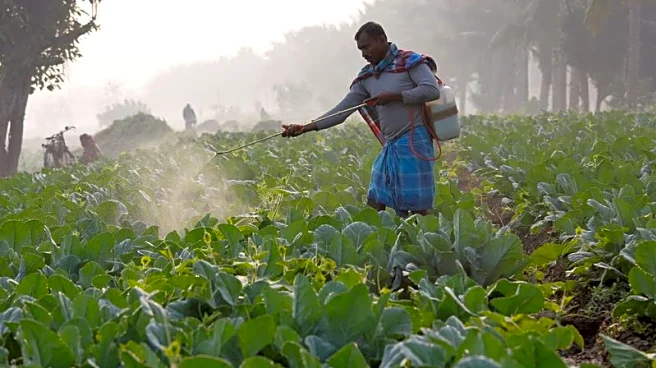Rapid Read • 7 min read
The World Food Program (WFP) has reported a significant increase in child malnutrition in Afghanistan, marking the sharpest surge ever recorded. The agency highlighted the need for $539 million to assist the country's most vulnerable families. The rise in malnutrition is linked to reduced emergency food assistance due to declining donor support, exacerbated by the U.S. administration's decision to cut food aid in April. Afghanistan faces acute food insecurity, with one in three children stunted and almost 10 million people affected.
AD
The surge in child malnutrition in Afghanistan has profound implications for the country's future, affecting health, development, and stability. The reduction in U.S. aid, previously a major contributor to the WFP, underscores shifting priorities in foreign policy and aid distribution. This situation may lead to increased humanitarian needs and potential instability, impacting regional security and migration patterns. The international community faces pressure to address these challenges and support vulnerable populations.
The WFP is seeking additional funding to continue its support for Afghan families, including those returning from Iran. The agency requires $15 million to assist returnees and $539 million through January to address broader needs. The situation may prompt discussions among international donors and policymakers on how to effectively respond to the crisis. Climate change impacts, such as drought and water shortages, further complicate efforts to improve food security in Afghanistan.
The crisis in Afghanistan highlights ethical considerations in international aid distribution and the role of climate change in exacerbating humanitarian challenges. Long-term solutions may involve addressing environmental issues and fostering sustainable development to reduce dependency on external aid. The situation also raises questions about the responsibilities of wealthier nations in supporting vulnerable populations.
AD
More Stories You Might Enjoy











